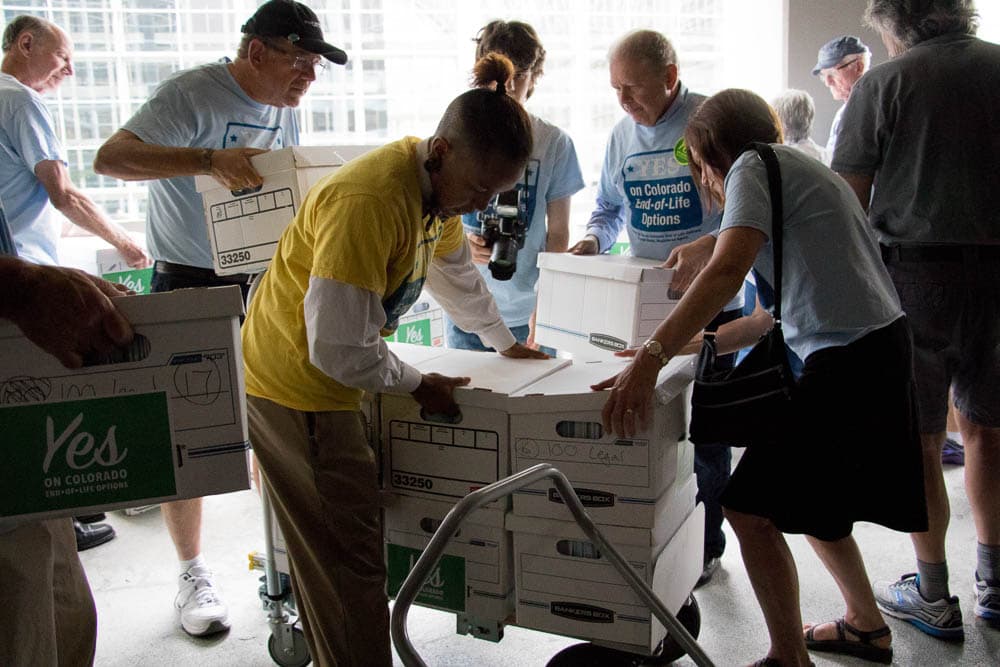Referred Measure 2B asks if the city should change its rules about the number of signatures required to get a proposed ballot initiative onto the city's ballot (it's a ballot question about ballot questions).
Here’s the language you’ll see on your ballot:
Shall the Charter of the City and County of Denver be amended to change the number of valid signatures required to place an initiative or referendum on the ballot from a percentage of votes cast for Mayor in the last election to a percentage of active registered voters in Denver and lengthen the amount of time during which City Council and the City Attorney must conduct review and comment for proposed initiatives?
What does that mean?
Right now, if you want to get a ballot initiative in front of voters you need to collect at least 5 percent of the total number of votes cast in the last election for mayor. Under the rule proposed in Referred Measure 2B, that threshold would change. Instead, folks would be required to obtain two percent of the city's number of active registered voters. In both cases, that number can fluctuate. The new proposal would change the number of signatures to depend on the number of active registered voters instead of on the previous turnout.
For example, the city currently has nearly 400,000 active registered voters. This means, if Referred Measure 2B were to pass, you would need to collect nearly 8,000 signatures from Denver County voters to ensure the measure is on the city's ballot. Under current rules, 4,726 valid signatures are required to get a ballot initiative before voters in the May 2019 citywide election. The number of required signatures has bounced around between 4,000 to 6,000 since 2003.
Who’s for it and who’s against it?
The ballot was referred by the Denver City Council in a 12-1 vote in July, with Councilwoman-at-large Debbie Ortega voting no. Councilman Kevin Flynn said the proposal helps "stabilize" the number of required signatures. Since the current system is based on previous voter turnout, the threshold can change depending on how competitive a mayoral race can be. Councilman Paul López said the new proposal helps "normalize those numbers" and said it's the proposal is "good government."
During the council vote, Ortega said she opposed, asking whether a change was necessary. She said the process takes care of itself: "People find out how many signatures are going to be required.” López, while he supported the proposal, suggested going even further and increasing the percentage of active voters threshold to 2.5 percent, though that was rejected by a 7-6 vote.















